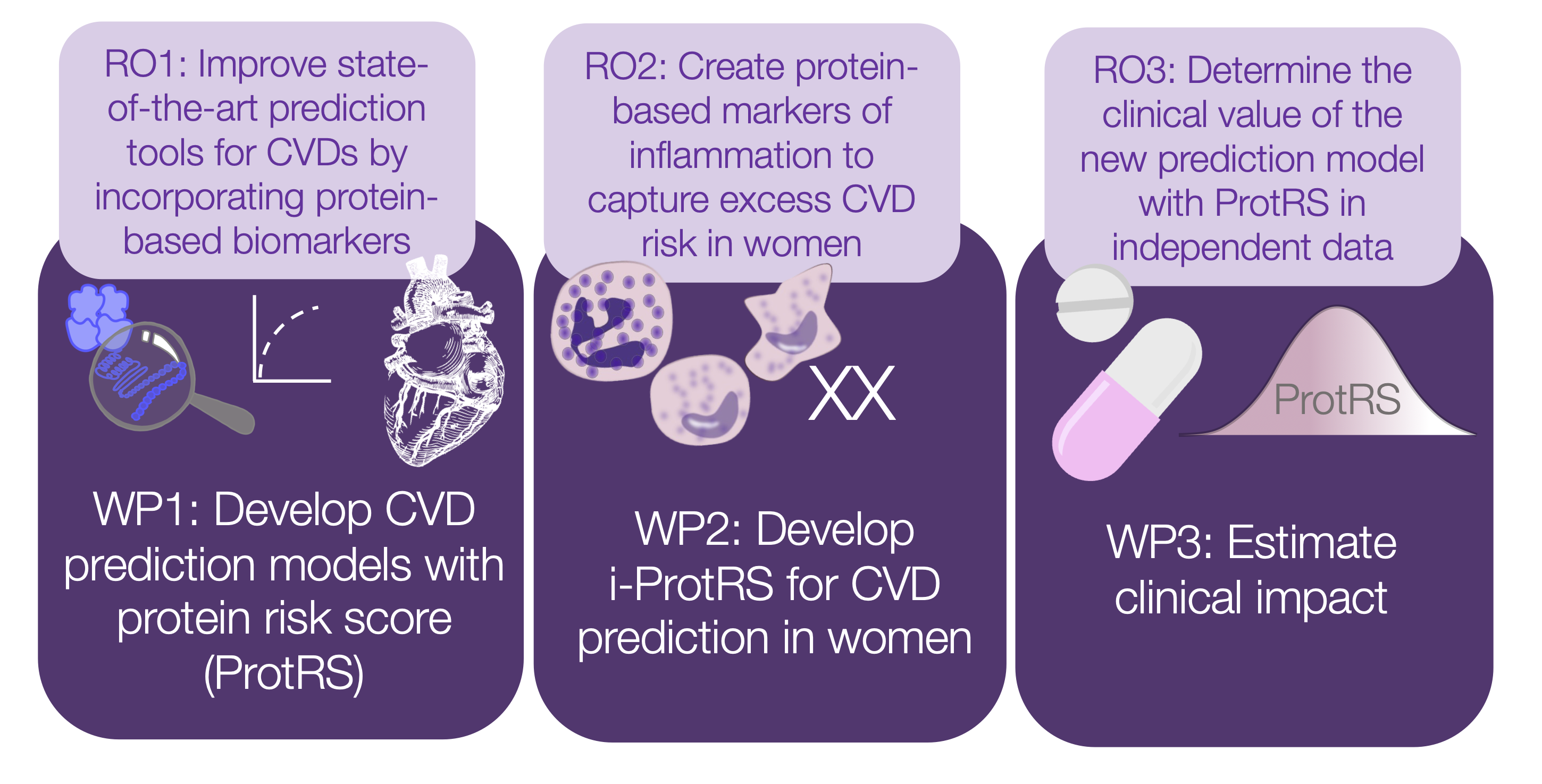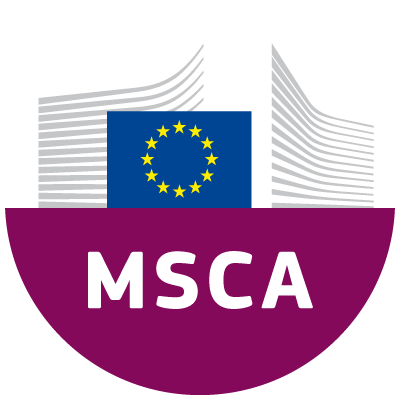ProtectHearts
Precision Public Health

ProtectHearts
Cardiovascular disease (CVD) remains the leading cause of death globally for men and women. State-of-the art clinical risk prediction models for CVD use conventional risk factors and polygenic scores (PGS)—a measure of an individuals’ inherited CVD risk. However, the accuracy of current models is moderate and worse in women than men. Protein markers of CVD represent an individual’s current health state and both inherited and environmental disease risk. Indeed, there is evidence that combining conventional risk factors, PGS, and protein markers of CVD may facilitate vast improvements in CVD risk prediction. Furthermore, by modelling inflammation- specific protein markers missing from sex-specific CVD risk models, ProtectHearts will specifically capture excess risk in women.

ProtectHearts will use the world’s largest population-biobank-linked proteomics datasets to 1) develop a novel protein-based risk score (ProtRS); 2) develop an inflammation-specific ProtRS (i-ProtRS); and 3) estimate the clinical utility of these scores when modelled with clinical risk scores and PGS. Cutting-edge machine learning algorithms will be used to establish target proteins for CVD prediction in 100,000 individuals across four European biobanks.
ProtectHearts brings together a physician-scientist Supervisor with proteomics expertise and a Fellow with experience modelling CVD risk prediction using PGS in biobanks. Through a secondment and non-academic placement, the Fellow will gain intersectoral experience. Activities of the training and dissemination work packages will build her competencies in machine learning, advanced statistics and science communication. ProtectHearts will engage clinicians in exploitation of the new sex-specific, comprehensive CVD risk prediction model.
ProtectHearts has the potential to move CVD risk prediction beyond state-of-the-art by improving risk prediction accuracy, specifically in women, using protein-based markers for CVD and CVD-related inflammation.
HUNT AI for Heart Health
Funded as a 3-year project by a The Liaison Committee for Education, Research and Innovation in Central Norway, HUNT AI for Heart Health aims to use health data and artificial intelligence to develop a precision medicine approach for cardiovascular disease prevention focused on better risk prediction. The combination of electronic health records, diagnosis codes, clinical imaging, free text and lab values available through St. Olav’s Hospital, genetic data available through the Trøndelag Health Study (HUNT), and registry data available through Helsedata.no provides a feature set for emerging explainable artificial intelligence (XAI) techniques.
Together with Hemit HF, Central Norway Region Health Authority’s Technology Company, we will combine structured and unstructured health data and employ explainable artificial intelligence (XAI) methods to improve CVD prediction, particularly in young individuals (<40 years) and women. Project results, such as a Clinical.Risk Score based on patients’ electronic health record, can ultimately be returned to the electronic health record to improve patient care and contribute to sustainable health care in Norway.







